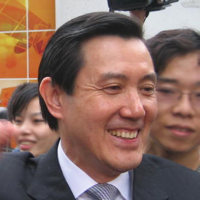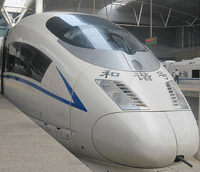At long last, Washington looks ready to pass free trade agreements with Colombia, Panama and South Korea. Congressional ratification has been a long time in the making — the trade agreement with Colombia was signed in 2006, while the agreements with Panama and South Korea were inked in 2007. The trade deals with Colombia and Panama were, in some sense, part of a last-ditch effort by President George W. Bush to salvage the work put in by former Presidents George H.W. Bush and Bill Clinton to create the Free Trade Area of the Americas. Hopes for that hemisphere-wide trade zone […]
East Asia Archive
Free Newsletter
In thinking about how to support the twin goals of deterrence and assurance, the Obama administration has been struggling with how best to integrate U.S. nuclear weapons, conventional forces and missile defenses into a coherent strategic posture. Now budgetary pressures are making the trade-offs involved in striking the necessary balance for such an initiative even sharper. These three military tools interact in complex ways. Nuclear forces are very powerful but for the most part unusable due to their destructiveness and the taboo associated with their use. Their main value is therefore to deter adversaries and reassure allies, thereby helping to […]

The Taiwanese government of President Ma Ying-jeou has denied that it harbors plans for siding with Beijing in territorial disputes over the South China Sea. Yet the notion that the resource-rich and strategic waters should be the starting point for cross-Strait military cooperation is gaining traction on the island. Since last year, the People’s Liberation Army Academy has repeatedly called for cooperation with Taiwan in protecting “common ancestral rights” in the region’s disputed waters. At the same time, China has regularly invited retired Taiwanese military brass to cross-Strait symposiums where cooperation in the South and East China Seas as well […]

BEIJING — China’s social contract revolves around the Communist Party delivering the benefits of modernization to the country’s citizenry, and not, as Western observers might hope, around the transition to multi-party democracy. Consequently, technocratic failure presents the greatest risk to the party’s domestic credibility, something emphatically highlighted by the ongoing wave of public anger over the Wenzhou high-speed rail crash. Moreover, unlike recent high-profile political cases, the Wenzhou crash might very well turn out to be the moment China’s emerging public sphere came of age. Beyond loss of life, perhaps the most profound source of public anger regarding the crash […]
While the horrific famine in the Horn of Africa has captured international attention, a similar emergency on the other side of the world, in North Korea, has quietly moved past the point of crisis. The World Food Program in April called for $224 million in emergency aid for North Korea. But the international community — particularly the United States and South Korea, traditionally the largest donors to North Korea — have so far refused to fund the request. Their resistance, according to Roberta Cohen, a nonresident senior foreign policy fellow at the Brookings Institution in Washington, can best be explained […]
